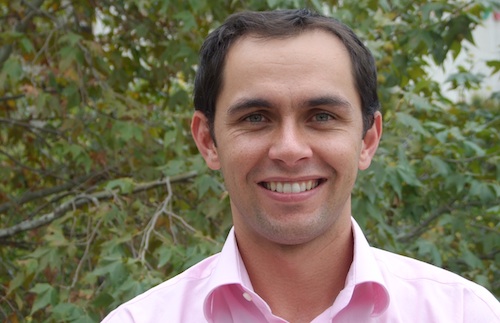
[By Alan Knott-Craig]
Have you ever considered how hard it is to actually do things? Build a bridge? How hard can that be? Write the Google algorithm? It’s just a string of words, piece of cake! Connect to the Internet? What could be easier?
As an accountant, I tend to oversimplify and underestimate the magic of much of what happens in the world. Mainly because I don’t actually know how things work.
Accountants can wax lyrical on the health of a balance sheet, but do not ever put one in charge of the mechanics of a bullet train. You need magic to make a bullet train work. Physical expertise. Dirty hands.
The truth is I don’t care. Why? I blame my dad. He’s an electrical engineer, with a fetish for welding and braais. Most of my childhood memories comprise holding white-hot iron — gloveless and maskless — while dad attached a random iron rod. Flinching brought a swift klap to the head. The final product was usually a braai place to be sold to one of his friends. Little did the friend know what had gone into the making of said braai place.
Blood, sweat and tears. Literally.
Hence my innate fear for DIY.
Luckily, I hang out with engineers, and I’ve come to appreciate the difficulty of making the magic happen. Of making things.
Whether you’re building a bullet train or a braai, it’s still magic.
And if you think a bullet train is impressive, wait till you see how a wireless data network functions.
Want to see what’s on www.apple.com? No problem. Your phone/modem sends pieces of coded data over invisible radio waves to a base station, which in turn is connected via thousands of kilometres of copper, fibre or microwave to the “brain” (a server/switch sitting in a data centre), which is then routed to the landing station for Sat-3, sent thousands of kilometres under the ocean to London, handed over to a trans-Atlantic cable, handed over to a terrestrial network on the US east coast, and sent to some server sitting in San Francisco to grab the image of the Apple landing page. And back. In less than a second.
Does that sound easy? Does that sound free? To me, it sounds miraculous.
And that’s just the connectivity. What about planning? Maintenance? Each base station requires air conditioning. And electricity (for the aircon.) And an alarm (in case someone wants to steal the aircon). Armed response. What happens when lightning strikes a base station? A techie gets in his car at 2am, drives out, climbs the 20m mast, and replaces a panel. At night. In the rain. By hand.
I remember one of the iBurst techies, Bongi, was mugged while checking the batteries in a transmitter. Once relieved of his valuables he was locked in the base station. The only way he could call for help was to unplug the power. Another techie was sent to fix the fault, only for him to find Bongi inside.
What about spring? Damn spring and the leaves. Johannesburg changes from a bare, dry, dusty town in winter, to a lush forest in spring. Radio waves cannot penetrate vegetation. So with the rains come slow download speeds, poor signal and unhappy customers.
One day a key base station in Bryanston went down. The techie raced out to find the cause, only to discover someone had built a five-storey building exactly between our microwave transmission links. A building. How do you move a building?
The core switches cost tens of millions of rand. They control hundreds of millions of data transactions every minute. And they must keep record of the flow so you can be billed correctly.
Does this sound like a cheap enterprise?
Why do we have this fixation with expecting Internet connectivity to be free? Probably because it’s free in parts of America, and surely if it’s free there then it should be free here. It’s our God-given right and damn you to hell for questioning it!
Think about that for a second. How can it be free to do everything that has been described above? Volunteers? You think techies are so bored they volunteer their time to be mugged and locked in base stations? To climb masts in lightning storms to replace panels?
There is no such thing as a free lunch. Magic costs money. Personally, I’m just grateful that we have magicians.
- Alan Knott-Craig is CEO of World of Avatar. This column was originally published here and is used with permission
- Subscribe to our free daily newsletter
- Follow us on Twitter or on Facebook
- Visit our sister website, SportsCentral (still in beta)




